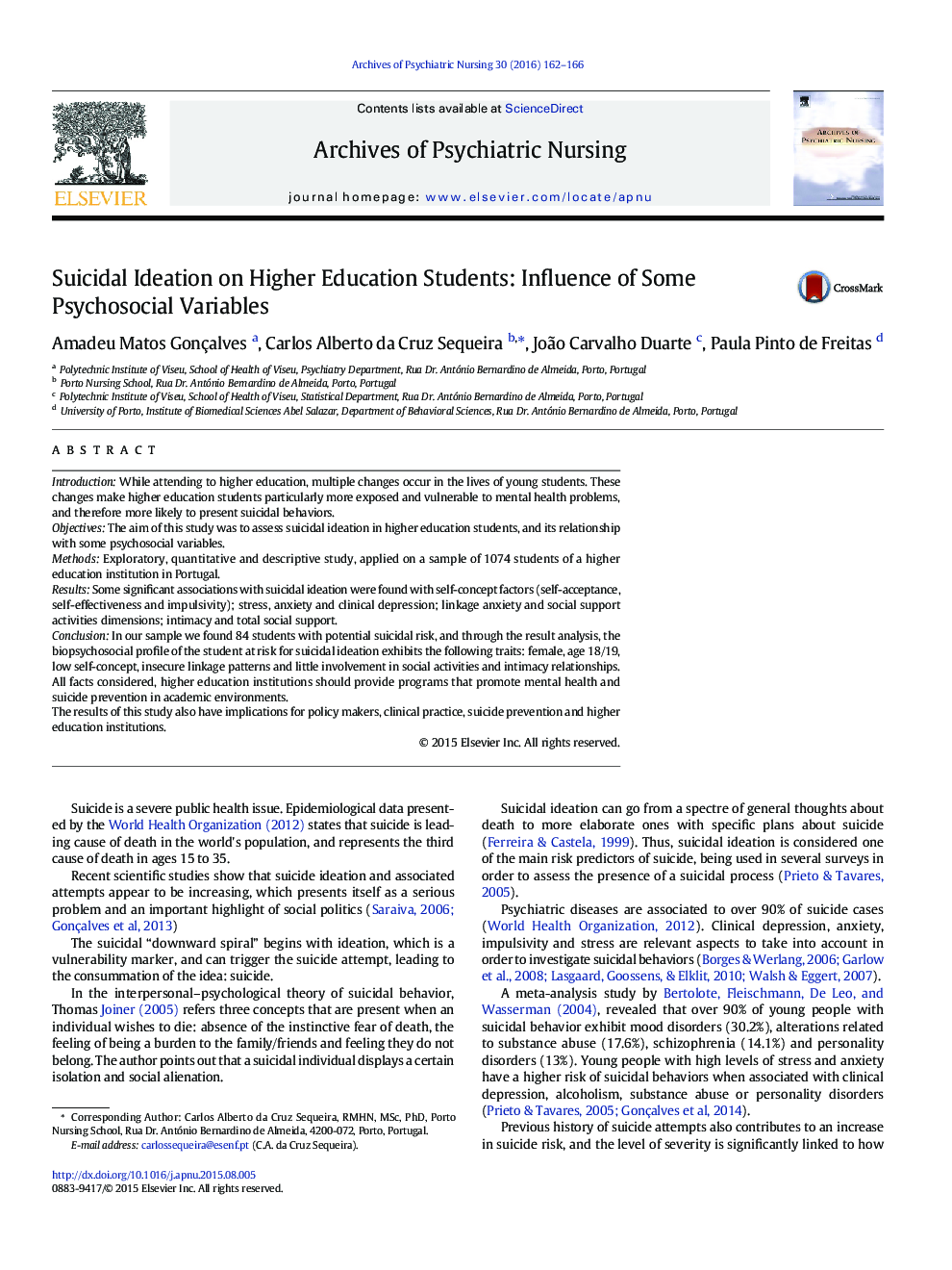| Article ID | Journal | Published Year | Pages | File Type |
|---|---|---|---|---|
| 315600 | Archives of Psychiatric Nursing | 2016 | 5 Pages |
IntroductionWhile attending to higher education, multiple changes occur in the lives of young students. These changes make higher education students particularly more exposed and vulnerable to mental health problems, and therefore more likely to present suicidal behaviors.ObjectivesThe aim of this study was to assess suicidal ideation in higher education students, and its relationship with some psychosocial variables.MethodsExploratory, quantitative and descriptive study, applied on a sample of 1074 students of a higher education institution in Portugal.ResultsSome significant associations with suicidal ideation were found with self-concept factors (self-acceptance, self-effectiveness and impulsivity); stress, anxiety and clinical depression; linkage anxiety and social support activities dimensions; intimacy and total social support.ConclusionIn our sample we found 84 students with potential suicidal risk, and through the result analysis, the biopsychosocial profile of the student at risk for suicidal ideation exhibits the following traits: female, age 18/19, low self-concept, insecure linkage patterns and little involvement in social activities and intimacy relationships.All facts considered, higher education institutions should provide programs that promote mental health and suicide prevention in academic environments.The results of this study also have implications for policy makers, clinical practice, suicide prevention and higher education institutions.
